 Book a Tour
Book a Tour WhatsApp
WhatsApp Join Waitlist
Join Waitlist
This month we celebrate National Dental Health Week at Heritage House. In our centres, the children will be participating in a range of activities designed to educate and engage them in the discussion of maintaining good oral health. Thousands of children across Australia suffer from serious tooth decay in their early years. Children go through some of the most critical stages of oral change growth and development as they grow up. They experience the rapid development of jawbones and gums during the early ages, and they start to lose teeth. When children’s dental care and health is deeply connected to their overall health, every parent should place a great deal of importance on the oral health of their children. As early childhood educators, we aim to support our families in instilling good habits to support the health and wellbeing of our children.
Check out our top tips to maintain good dental health in young children.
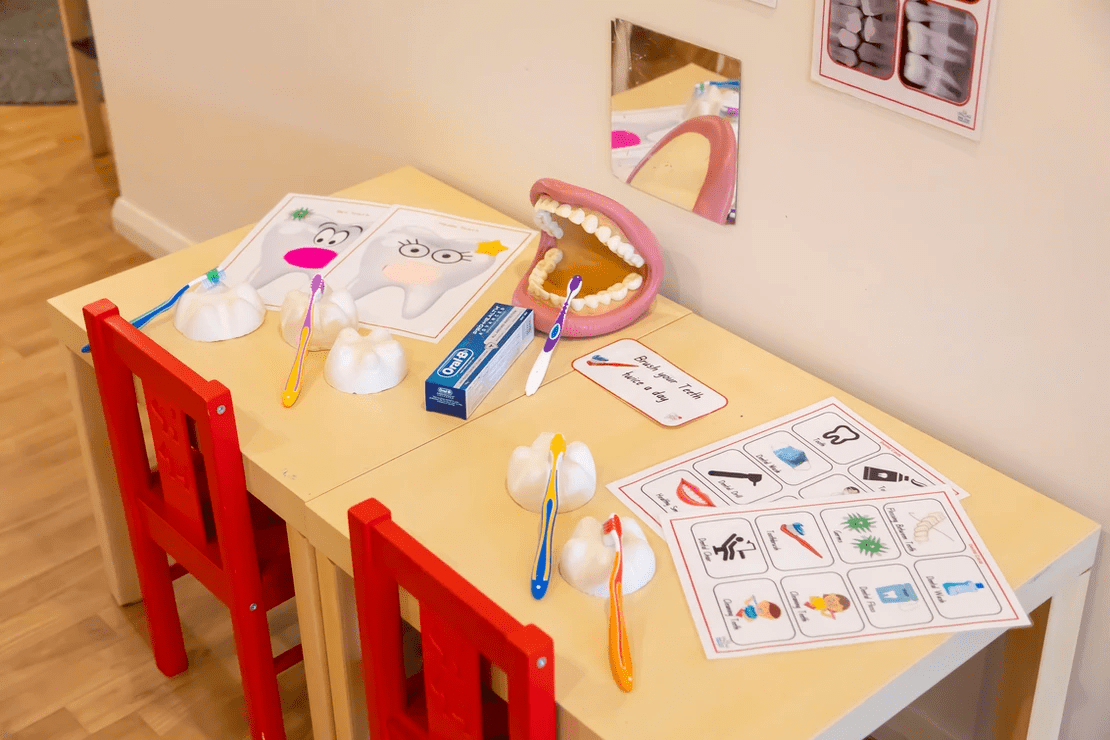

You should be starting to brush your babies’ teeth when they first appear (usually around 6-9 months). Using a special toothbrush and toothpaste designed for babies, these are gentle on young gums and allow the child to begin holding the toothbrush themselves. Starting these good habits early, you are helping set them up for success down the road.
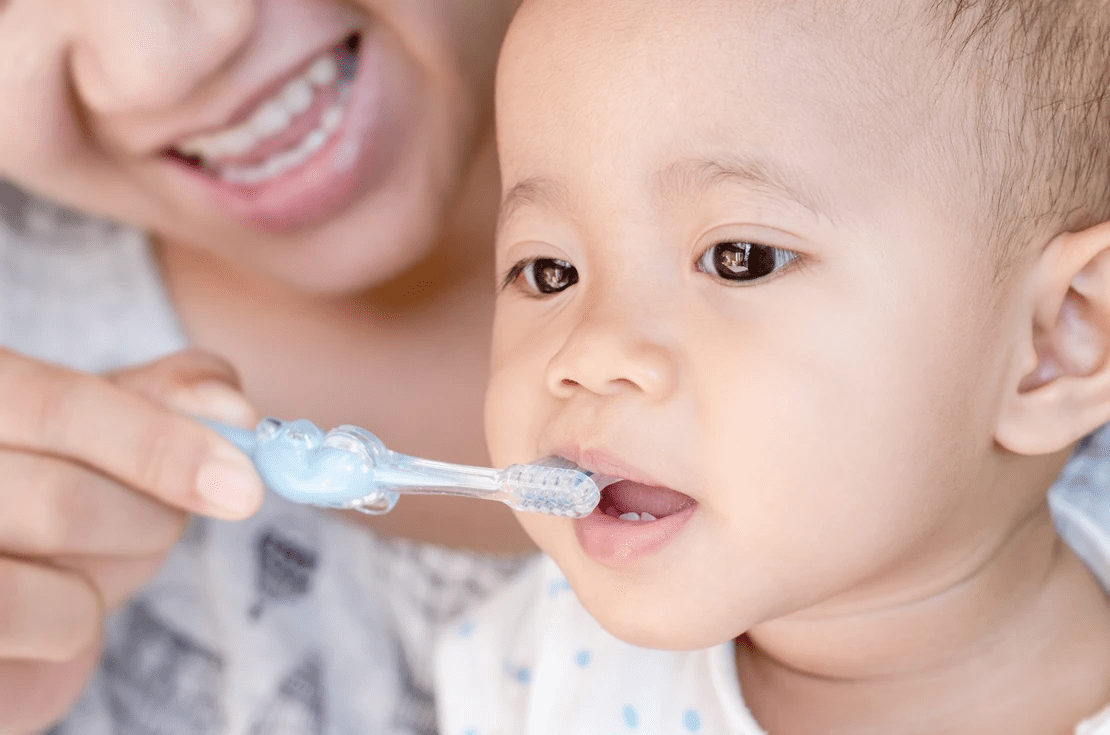
Brushing your teeth should be done for 2 minutes in the morning and in the evening. Flossing can also be incorporated as children get older. Teach your children how to move their toothbrush around their mouth to brush every tooth, and show them how it’s done yourself. Some children’s toothbrushes come with timers to help them know when it is time to stop. Alternatively, turn on a song for your kiddos and brush along – so helpful!
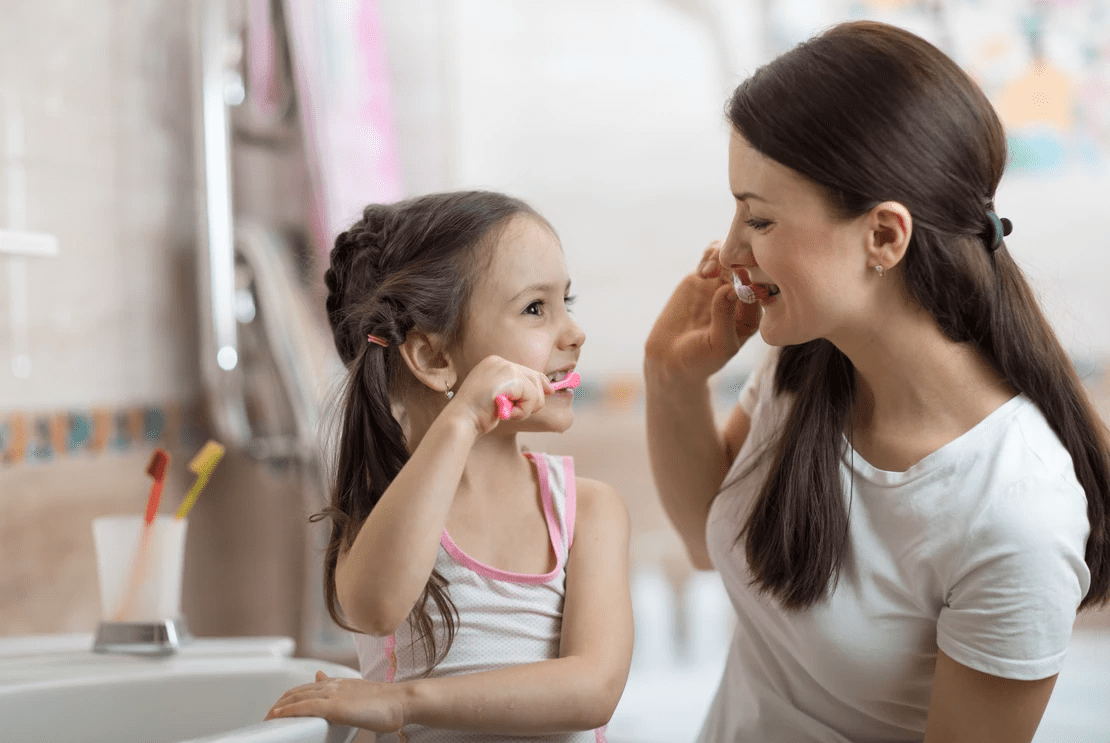
The Australian Dental Association recommends that the first check-up occurs within 6 months of the first primary tooth coming through but by no later than 12 months of age. Dentist visits can provide an opportunity to give oral health education for parents and children in areas such as:
Starting dentist visits early can also help children adjust and become comfortable in the situation, which can sometimes be scary for young children. Once a regular dental routine is in place, it becomes just another part of life and can help children maintain good habits into adulthood.
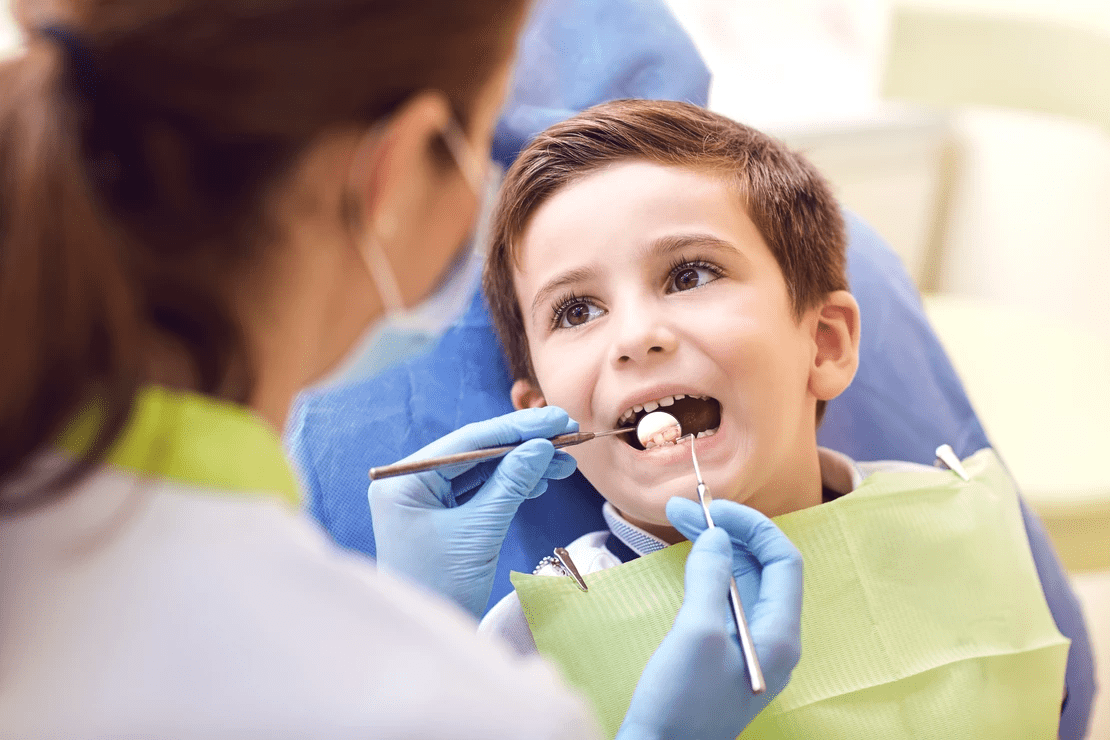
Saying ‘no’ to sugary foods and drinks is not easy for children (or adults for that matter). However, you can control the quantity of intake using some smart strategies that will benefit your child in the long run. Replace sugary drinks and snacks with healthy alternatives like fruits, crackers, cheese, and water. When your children do inevitably get their hands on lollies and sweets, make sure that they floss and brush before ending their day.
Choosing foods that can supplement the growth and development of your children’s teeth and gums are critical for their oral health. Their diets should have foods that supply calcium for the growth and development of teeth and Vitamin C to promote healthy gums.
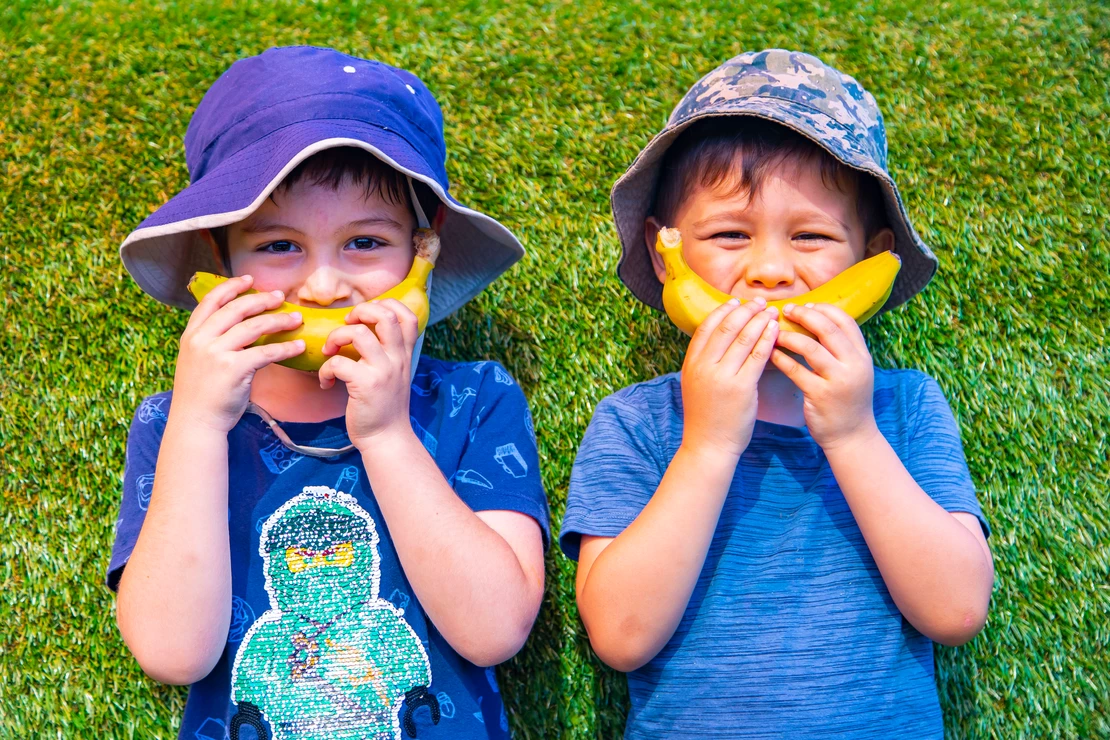

While teaching your children to follow good practices for dental health, you should also make brushing and flossing fun. You can lead them by example and let them know how you care for your teeth and gums or offer rewards for great oral habits. We encourage all our Heritage House families to discuss these points further with their Dental Practitioner.
Want to know more about how we help teach children about healthy habits? Contact your local Heritage House centre or reach out to us online.